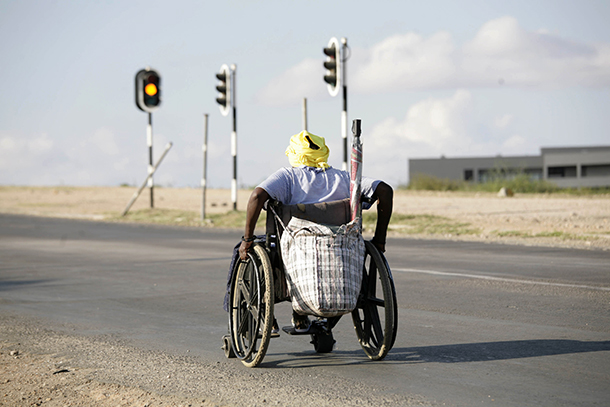
BY Chris Mahove
PUBLIC health advocacy group, Health Watch Zimbabwe, has called on government to introduce grants for people with disabilities to cushion them against poverty.
Speaking at a stakeholders’ meeting in Dzivarasekwa, Harare, at the weekend, Health Watch Zimbabwe director Sign Zhuwawo said government could introduce a disabled levy that would be used to pay the grants.
“We must fight for grants for the disabled. We need an Act of Parliament to allow for the grants because as long as they don’t have the grants, it will be poverty all over,” he said.
Zhuwawo said it was extremely difficult and expensive to look after disabled children because of their special needs.
“A disabled child would cost four times more than a normal child and the parents also can’t fend for them because they have to look after them round the clock,” he said.
Zhuwawo added that a large number of children living with disabilities did not have birth certificates because their fathers deserted them on realising their disability.
Gift Zulu, vice-chairperson Tashinga Organisation for the Disabled, said his organisation’s aim was to empower those living with disabilities so that they can get off the streets, where most spend their time begging for alms.
- Chamisa under fire over US$120K donation
- Mavhunga puts DeMbare into Chibuku quarterfinals
- Pension funds bet on Cabora Bassa oilfields
- Councils defy govt fire tender directive
Keep Reading
“Our vision is to empower the physically-challenged people and orphans so that they become self-reliant and remove the dependency syndrome which is common among them,” he said.
Zulu said people living with disabilities needed to be given assistive devices such as crutches, hearing aids and wheelchairs to help them engage in self-help projects.
He bemoaned the high divorce cases as a result of disabled children in families, noting that these children were neglected by relatives once their parents died or divorced.
Chairperson of the organisation, Gladys Munyuki, said they now had almost 800 members and were now looking beyond Dzivarasekwa and spreading wings to other high-density areas of Harare such as Glen View, Kuwadzana, Highfield and Ruwa, among others.
Destiny for Africa Network representative Chipo Misha said her organisation would consider giving land to Tashinga and also assist them start self-help projects.











